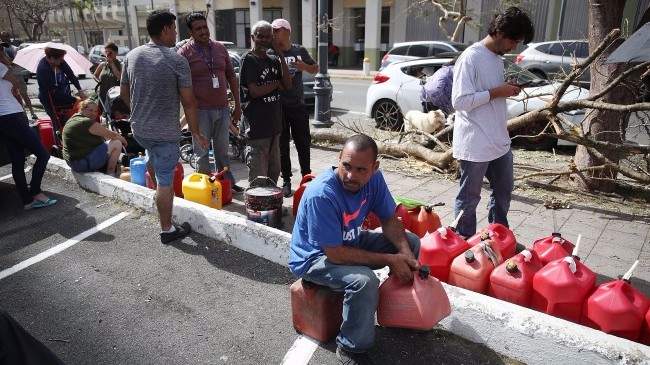
The response to Hurricane Maria was partly hindered by the Jones Act, a nearly 100 year old law that required that items shipped between American ports be (basically) ferried on American ships owned by American businesses with American crews. The Trump administration did not waive the Jones Act, which meant that any foreign aid shipped to Puerto Rico would have been a violation of the act. Homeland Security did institute a temporary waiver on the act, so supplies made their way into the U.S. territory faster, but DHS has announced that the waiver would not be extended:
With the 1920 law back in effect, the island will go back to paying much higher shipping costs to import supplies. The Jones Act requires that all goods shipped between U.S. ports be carried by American-owned and operated ships, which are more expensive vessels than others in the global marketplace. That’s meant that Puerto Rico pays double the costs for goods from the U.S. mainland compared with neighboring islands — and that U.S. vessels are making bank.
Puerto Rico was already facing a decade-long recession prior to hurricane season. Now, barely any resident has electricity, and half still remain without drinkable water. The death toll stands in the dozens, but a lack of cell service and other communication difficulties mean that the number is likely higher than the current official number of 36. Higher shipping costs won’t ease any of these burdens.
According to DHS spokesperson David Lapan, extending the waiver is unnecessary because there are enough ships that are compliant with the Jones Act. Sen. John McCain has called for the Jones Act to be abolished, but seeing as Trump took so long to institute the waiver in the first place, McCain’s efforts might be for naught. As Trump has continued to insult San Juan Mayor Carmen Yulin Cruz, it’s beginning to look more like the administration won’t listen to Puerto Ricans who criticize them.
(Via Huffington Post)
